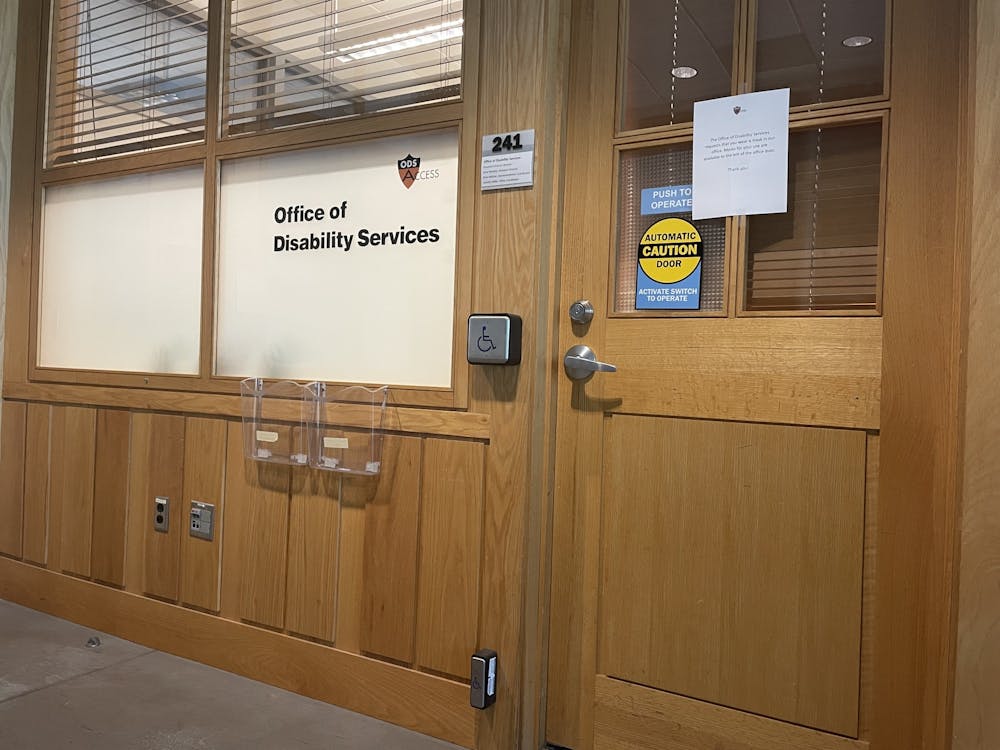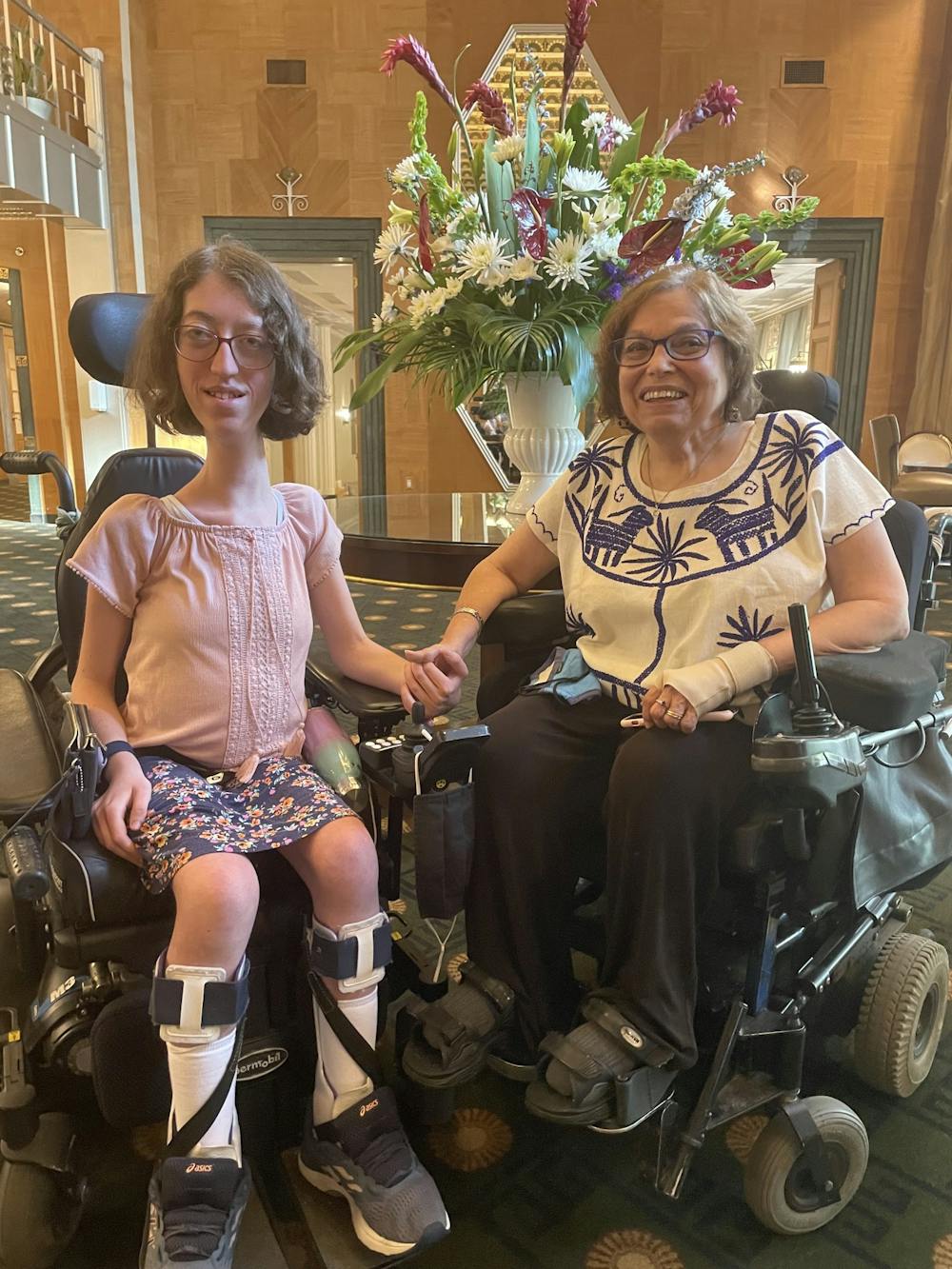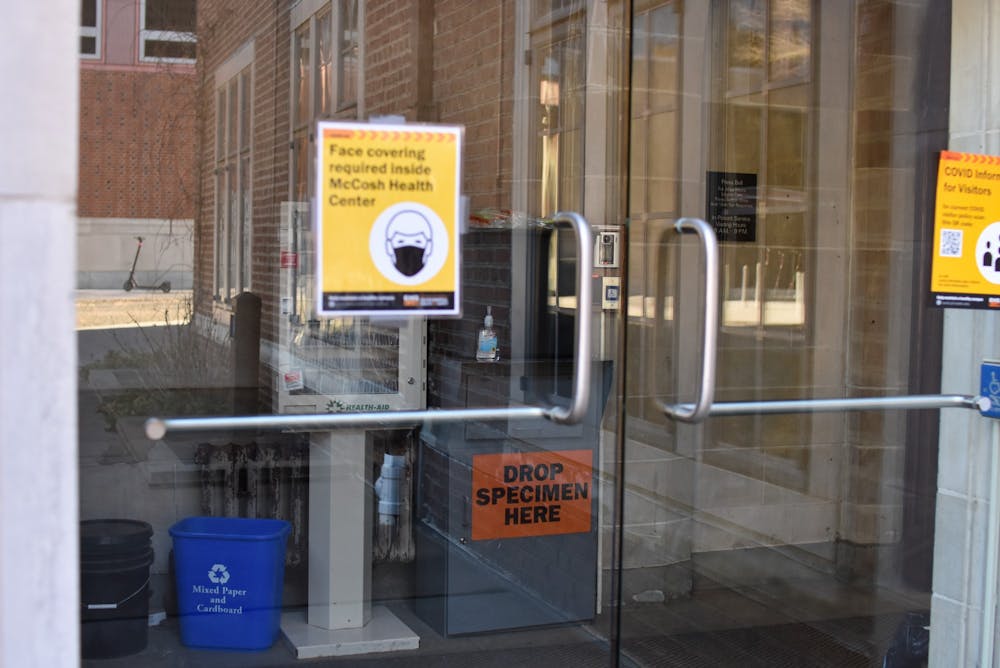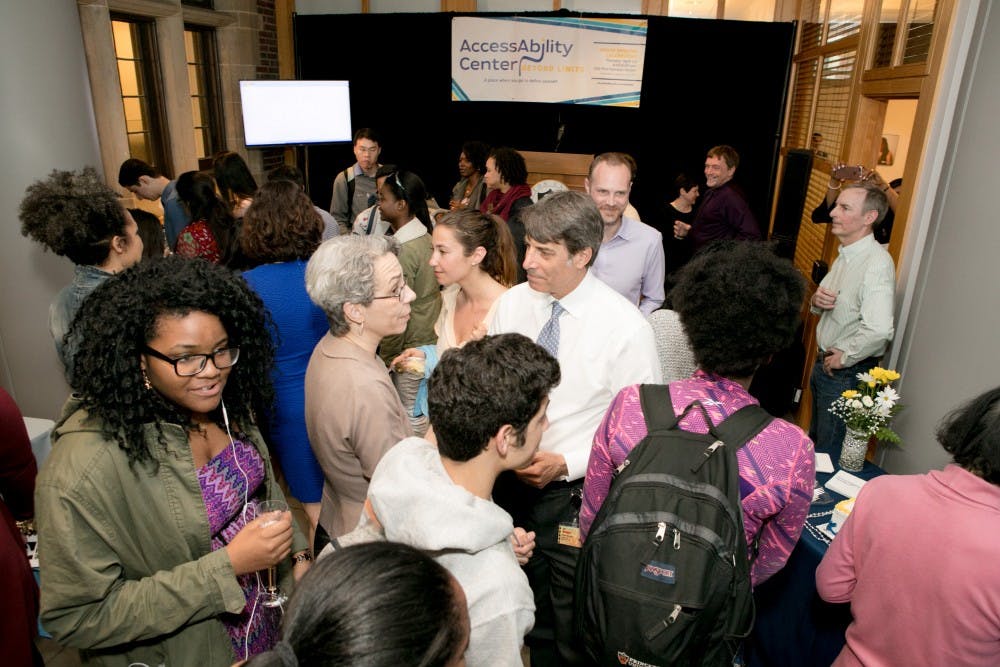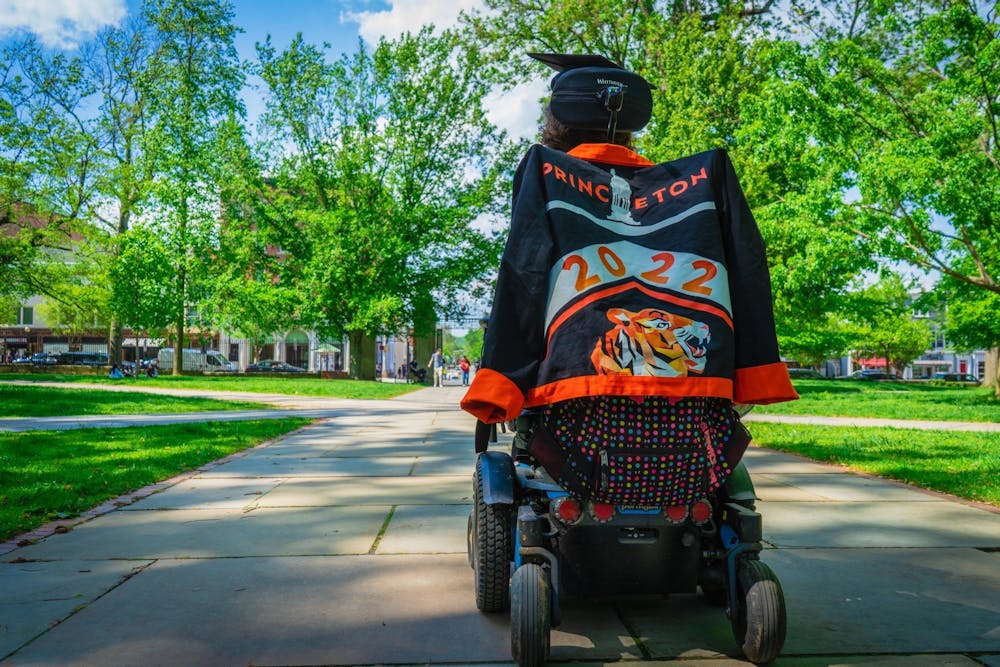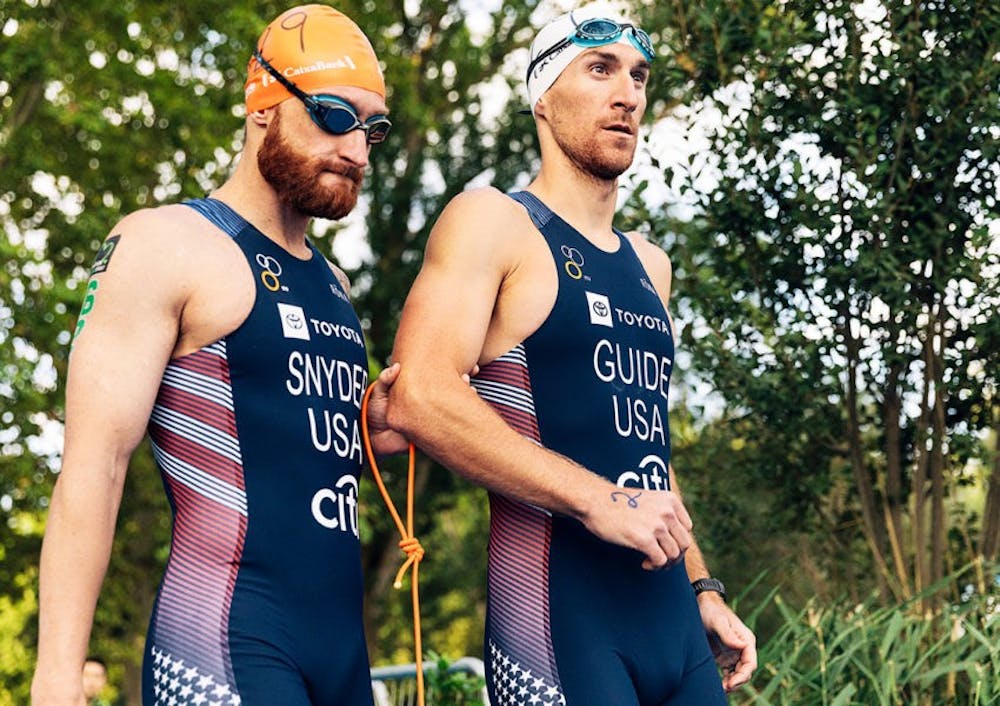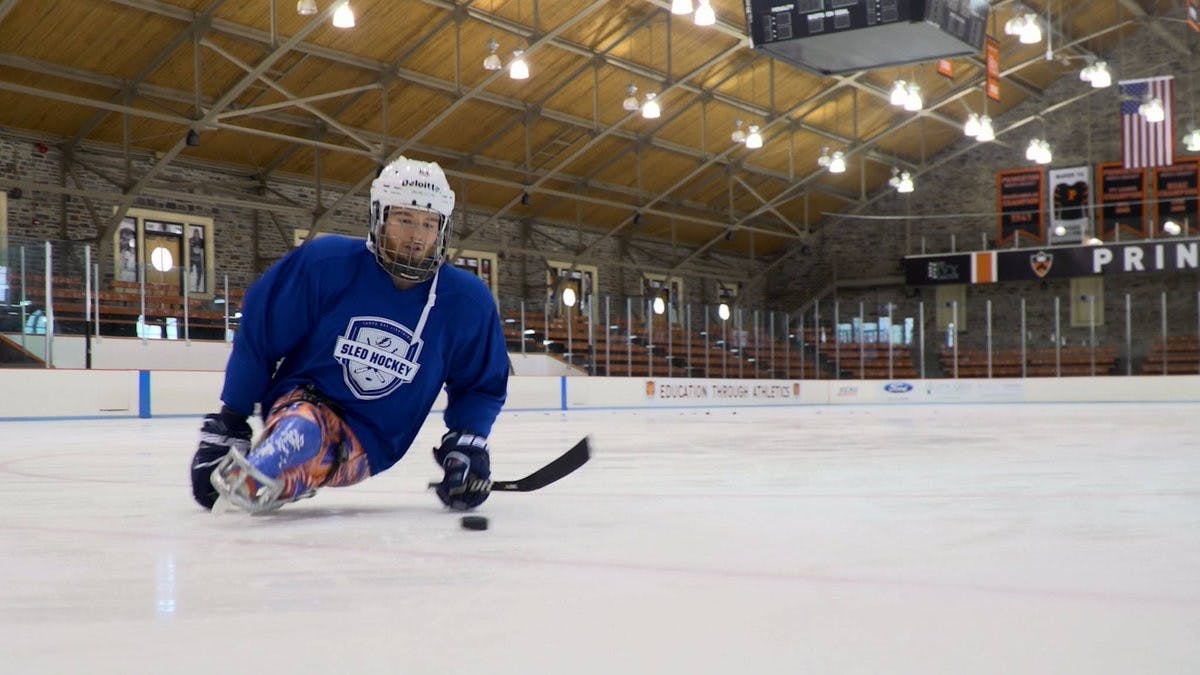Letter from the Editor
It’s less than ideal that I’m writing this. As a non-disabled person, I hesitate to speak (or write) for the disabled community. In doing so, I can’t help but feel as though I am perpetuating a long, problematic history of non-disabled people calling the shots, and, in doing so, drowning out disabled voices that could represent such issues more accurately. It’s a tradition I don’t care to carry on.
Still, literacy in disability justice can be a rarity. Perhaps especially so at an institution like Princeton, which does not offer a formalized program in disability studies. The campus is full of buildings that predate the Americans with Disabilities Act and Section 504 of the Rehabilitation Act by almost two centuries. We’re built on a hill — which poses difficulties for those with mobility related disabilities. Moreover, the University is portrayed in a none-too flattering light in an essay written by activist Harriet McBryde Johnson, prominently featured in Alice Wong’s widely read anthology “Disability Visibility.“ Our data team just reported that only 92 of 170 campus buildings are entirely wheelchair accessible and that 17 buildings remain entirely inaccessible. When it comes to accessibility, I fear our school has a bad reputation.
I refuse to be a fatalist. The landscape can be leveled, buildings renovated or razed, and curriculums developed. Scouring course offerings for the keywords “accessibility,” “access,” or “disability,” I’ve witnessed increased academic interest in the field firsthand: “American Deaf Culture,” “Introduction to Radical Access: Disability Justice in the Arts,” and “Disability Justice,” all new courses in the last two years, come to mind.
At Princeton, I’m often subjected to well-intentioned questioning about my passion for disability justice. I’ve gotten funny looks for the sticker on my iPhone case, which reads, “Your ableism is showing.” (In fact, it’s a covert conversation escape hatch — a simple point to the sticker allows me to call out ableism in conversation without making things too awkward). People assume, at times, that someone in my family must be disabled, or that I have a hidden disability myself — neither is the case.
This assumption strikes me as odd, or at least idiosyncratic. For other marginalized groups at Princeton (such as women, BIPOC or LGBTQ+ students, etc.), allyship is normalized, even expected in many circles. Why then, does my support for disability justice seem to demand explanation?
Here’s the true story about why I care: in middle school – a time when I claimed precious few close friends –, a local Little League baseball team for individuals with disabilities provided me with a crucial sense of community. The disabled community embraced and protected me at my most vulnerable. As someone privileged in an ableist world, I’m doing my best to return the favor.
My connection to the disability community may seem banal, and sometimes dissatisfactory for those who were expecting me to share a heart-wrenching story of the tidal impact disability has had on me or my loved one. If that’s what you were expecting from this letter, I’m sorry to disappoint.
I hope that this issue will not require explanation. In my view, the stories within it speak for themselves. Disability is pertinent, worthy of coverage in News, Data, Features, Opinion, Prospect, Sports, Podcast, and every other section of our publication. Not just for a special issue, and not just in March during Disability Awareness Month, but always.
In this issue you will hear from disabled voices directly, such as Naomi Hess’ stand-out reflection on an encounter with ableism on campus, or Michael Barnes’ thoughts on how his own experience with disability influences his work as the inaugural Director of Campus Accessibility. Other stories will be told from a non-disabled perspective, such as Sophie Glaser’s profile remembering recently-deceased disability rights activist Judy Heumann, shedding light on the many special connections Heumann had to the Princeton community. All of these stories aim to celebrate and center disability — a topic continuously marginalized in our society.
Journalism and disability do not go hand-in-hand naturally at first glance. The former is a world of tight deadlines and a rigid “way of doing things,” the latter is one that at its core, values doing things at your own pace and in your own way. It takes special care and sometimes a bit of extra work to accommodate both. I want to recognize the team that has worked with deftness and flexibility to compile the issue these past few weeks.
Then again, what is journalism if not amplifying the voices of those whose stories generally do not get told? Now completed, this issue will hopefully prompt institutions and individuals across campus to look inward in consideration of accessibility — including The Daily Princetonian, an organization I call home. As we publish this issue, we at the ‘Prince’ must live with the uncomfortable knowledge that our once-robust accessibility working group is at a point of flux, struggling to secure new long term leadership. In its heyday, the working group implemented text to speech functionality for our articles published online and supported the updating of our house style guide to reflect informed and inclusive language.
Cross-movement solidarity is one of ten core tenets of disability justice. In that spirit, I’ll echo the words of Eden Teshome, lead project manager for our Black Voices Special Issue published in December. Concluding her own reflection on the project, she extends the promise that “this time will not be the last” for discussion of Black issues in the ‘Prince.’ As far as I’m concerned, the same goes for disability. There’s so much more work, more writing, and more reporting to be done.
Tess Weinreich is an associate News editor for the ‘Prince.’

